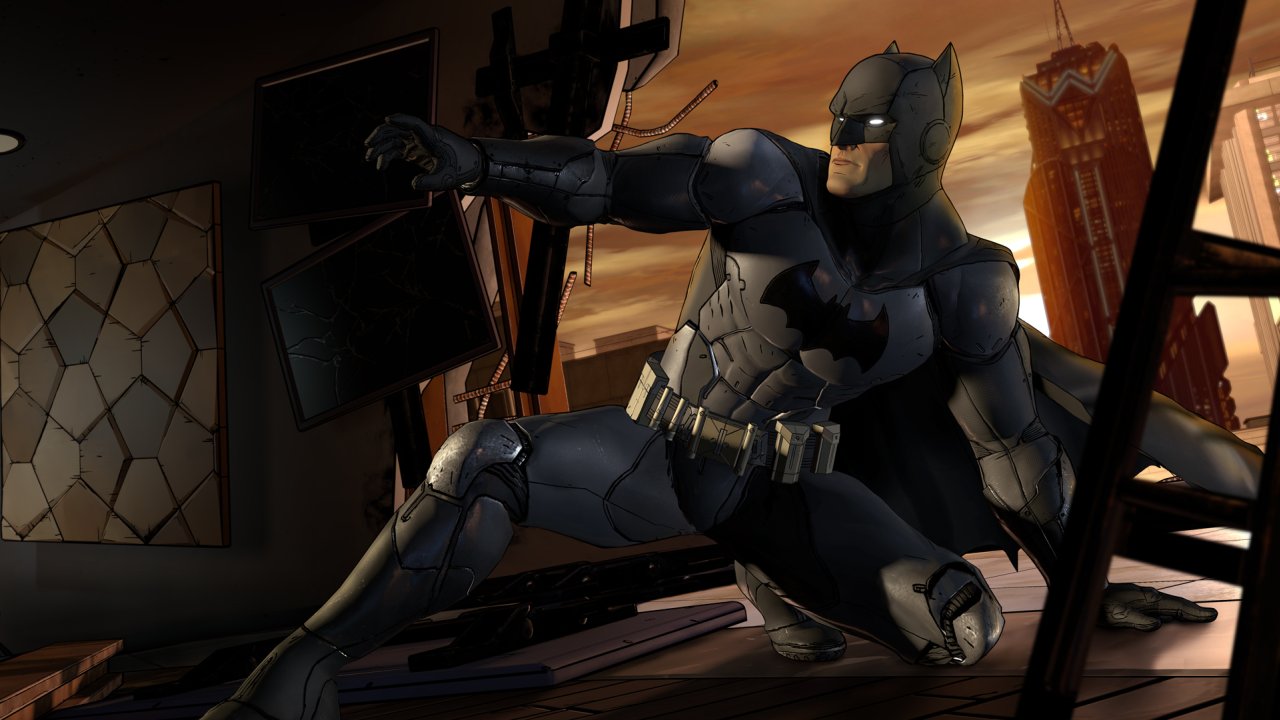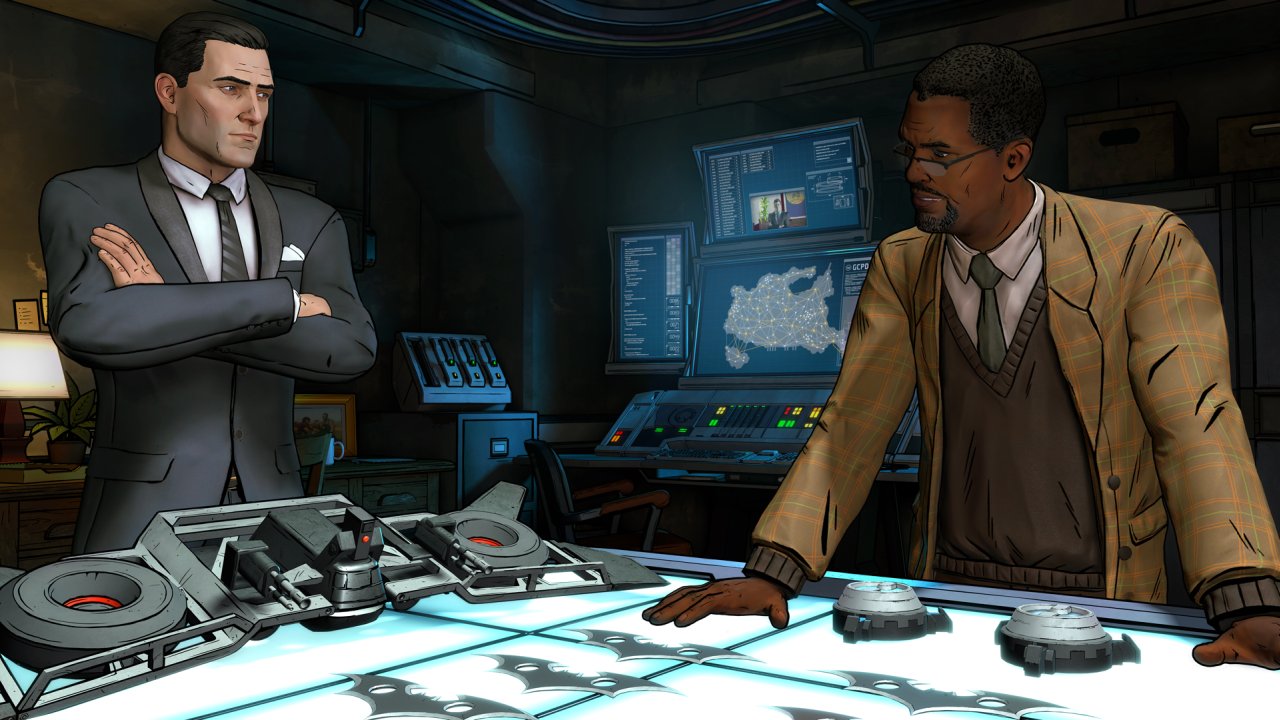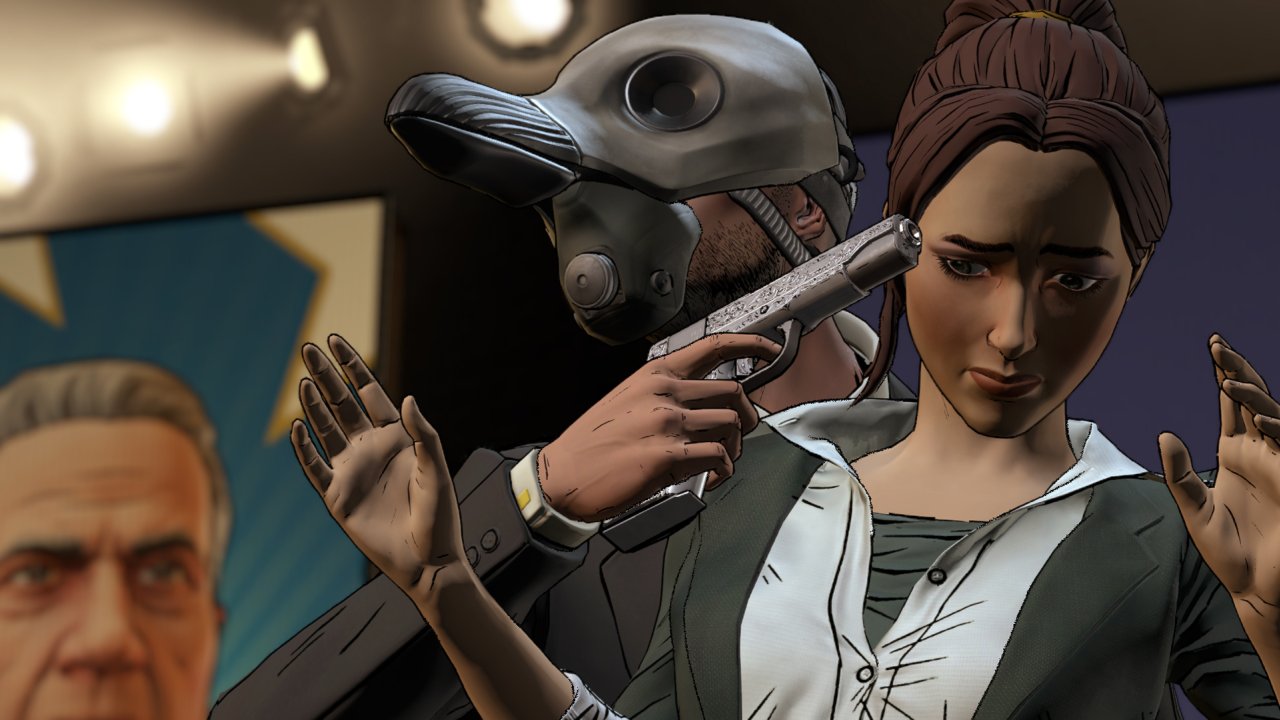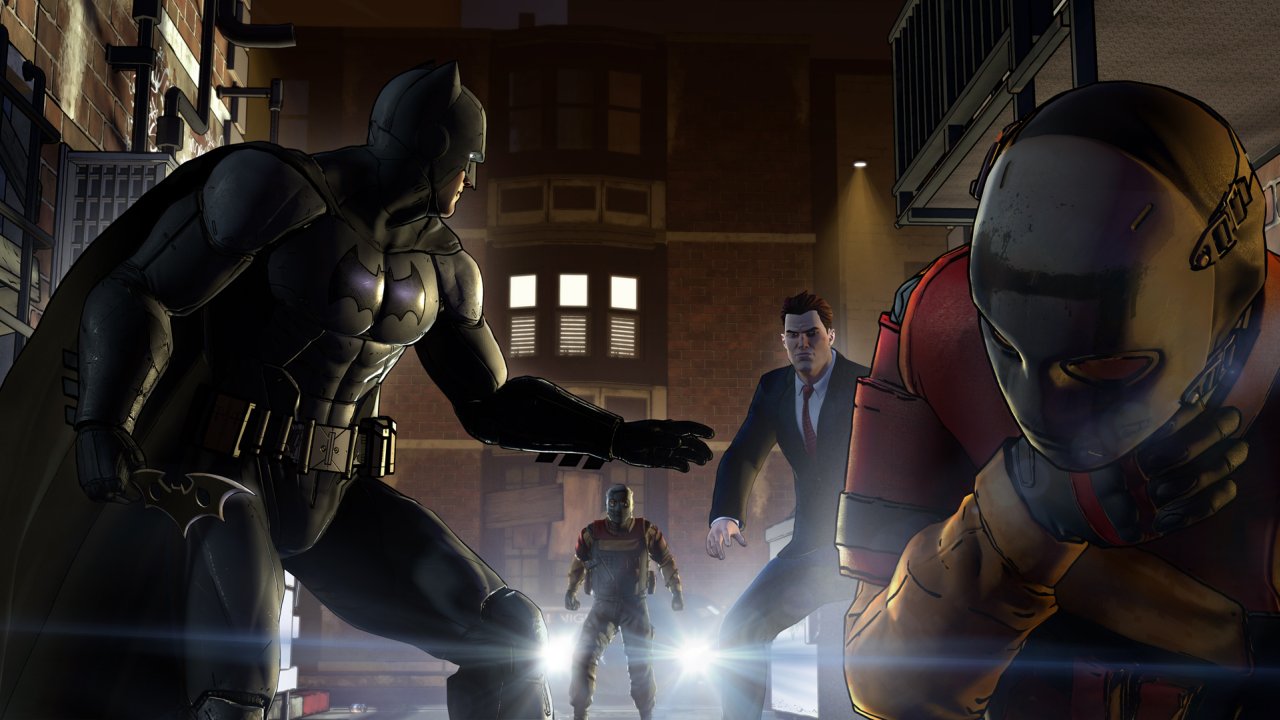Batman - The Telltale Series Review
A very promising start eventually settles into a familiar rhythm
When I first took a look at Batman: The Telltale Series in early August, I felt like it was a surprisingly fresh take on the life of Bruce Wayne. Wayne is often the overlooked character in Batman’s world, especially in video games, as we’ve now seen dozens of games (most notably the Arkham series from Rocksteady) and only a sliver of Bruce Wayne in any of them. Seeing not only Batman, but his famous rogues gallery appearing out of costume is an interesting take from this Telltale title. It’s a clear effort by the developers to use a more understated version of the character, focusing more on what happens to Batman outside of the suit than in it. But Telltale can only walk that fine line for so long and soon Batman: The Telltale Series becomes a much more typical adventure for the Caped Crusader. It’s clear the formula is being shaken a bit, but with so many franchise staples being used in later episodes, it’s hard to say that the game really explores new territory.

The season begins with Bruce Wayne trying to get Harvey Dent elected as the next mayor of Gotham. Attending swanky fundraisers and press conferences, Bruce is clearly using his political influence as a Wayne to try and do as much good for his hometown as he does in a cape and cowl. However, things take turn for the worse when it is revealed that Bruce’s family had ties to the notorious gangster, Carmine Falcone, and to the much maligned Arkham Asylum. The more Bruce discovers about his father’s involvement, the darker the story gets. Out for vengeance against a corrupt system to which Thomas Wayne was integral, a group of terrorists, called The Children of Arkham, are causing unrest in Gotham. Led by Lady Arkham, their terrorist acts start a chain events that send Batman on a collision course with many of his famous nemeses.
The series hits more often than it misses in this department. The game’s narrative beats cue up some tried and true moments already thoroughly explored (and better explored) in other Batman content, but you can feel the writing try to buck the weight of being just another Batman game. For instance, Bruce’s relationship with Selina Kyle (better known as Catwoman) is a prominent subplot in the story. While Laura Bailey (you might remember her as Fiona from Tales from the Borderlands or Kait in Gears of War 4) is doing some serious work to bring the femme fatale character to life, and Troy Baker’s Bruce Wayne is certainly equal to the task, the whole thing is just too familiar to Batman fans for it to be anything more than playful distraction. It’s fun, if nothing more than tried and true Batman formula.
This is really where the narrative falls short in Batman: The Telltale Series; even after it’s come up with a creative new take on the characters, they all behave in line with the Batman canon, making them predictable. Alfred is as loyal as ever, The Joker is as crazy as ever, Falcone is still a gangster stereotype, and Gordon is still the dutiful cop, in way over his head. The curveballs thrown in the first few episodes certainly work in the series’ favor, but once the dust settles, Telltale’s take on Batman isn’t far removed from the Bruce Timm animated series, the Rocksteady video games, and Nolan’s highly regarded trilogy.

The elements that work are those when Batman is finding new narrative roads to travel. Oswald Cobblepot’s new history as the childhood friend of Bruce with a power-hungry agenda to supplant him as CEO is a lot of fun. Bruce using Batman to atone for the sins of his father rather than as a means to cope with his death (or both) brings unique ideas to the table. Lady Arkham’s rantings and ravings about Wayne being part of the corrupt elite in Gotham feels very timely. This is where Batman: The Telltale Series is at its best, but unfortunately, these new narrative elements are brief.
The dialogue options and choices in the game lack the cohesive themes that Telltale is usually quite good at exploring. Instead of testing your perceptions of right and wrong, as they did with The Walking Dead, or setting you up to deliver the best jokes like in Tales from the Borderlands, Telltale is never quite sure what they’re asking of you in Batman. In the first episode they seem to be making a commentary on Bruce’s brutality as the caped crusader, questioning if maybe Batman is less of a symbol for justice and more of a cathartic release (for both Wayne and the player). Later, the question becomes about the Wayne legacy and Bruce’s place in it. Then, the game is asking you to decide if you’re interested in taking your relationship with Catwoman to the next level. The dialogue options don’t seem to really matter because by the time you’ve taken a stance, the game has already moved on to a new theme it wants your opinion on.
The highlight of the gameplay is easily Batman’s detective mode. This is by far the most a Telltale game has felt like an old school adventure title in a long time. As the Dark Knight, players must find clues throughout the environment and string them together to discover the crime that has taken place and how it occurred. It’s a nice touch, if often a bit simplistic, that reminds you how Batman is supposed to be part Sherlock Holmes, instead of a guy who just punches stuff.

Speaking of punching stuff, Telltale also has some fun in this department. A few times in the game, the action will freeze and you’ll have to plot out Batman’s plan of attack. Again, this is pretty easy and largely involves you pointing to weapons and then pointing to bad guys, but it adds a nice creative touch to the action.
Unfortunately, beyond this, the game is just asking you to hit the button prompts like many games before it. Telltale tries to make things more difficult by adding some more complex button prompts, but it’s even more forgiving than the average Telltale game. The action sequences can be visually interesting, but gameplay-wise they’re uninspired. One new twist to the mechanics is that each correct button prompt will build your Batman meter and when it’s full you’ll unleash a devastating attack. It’s nice they tried to do something different with the traditional Telltale action gameplay, but it pales in comparison to the Batman combat you’ve likely experienced in the Rocksteady games.
Batman: The Telltale Series also has some technical hiccups, though thankfully not relating to the framerate or save files. It’s still a large step forward from the frustrating days of The Walking Dead’s first season. But there are some lip-syncing issues that just make some of the dialogue feel off.

The trade off with Telltale is often that you’ll have to sacrifice some gameplay for a good story. The dialogue usually keeps you engaged as you then mechanically follow the prompts in the actions sequences. The problem is that the series largely relies on these action moments to further the plot rather than to break up dialogue sequences. For three of the five episodes this doesn’t hurt the game because Telltale is still presenting some of its better ideas, but by the fourth and fifth episodes the dust has settled and the game slowly starts to wear out its welcome.
I suppose I sound a little down on Batman: The Telltale Series, and that might not be fair. There’s a lot of good stuff to enjoy. Even when Telltale is retreading familiar franchise territory they’re still showing their flair for dialogue and writing chops. Usually, that is enough. When exploring new approaches to an established franchise like The Walking Dead or Game of Thrones, the Telltale shtick largely works, and it does here too. But it’s not as good as when Telltale is playing in more loosely defined settings like Fables or Borderlands. Batman: The Telltale Series is a fine game, but it’s not as new or fresh as the first episode made me think it would be.
 Comments
Comments



















